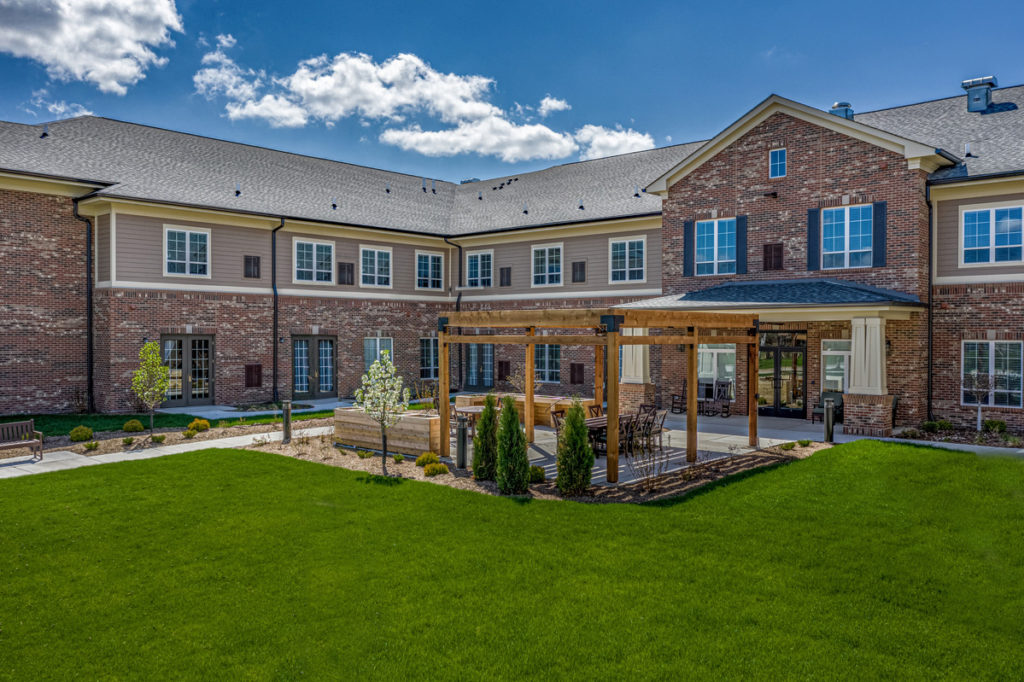Understanding Nursing Homes and Assisted Living
At any point in life, planning ahead is rarely the wrong choice. Anticipating choices and challenges can help a person or a family be prepared and can make choices easier during difficult times. For senior citizens and their families, there are many questions about the future that will need to be addressed and, like many other times in life, planning ahead can make all the difference.
There are many options for senior care for older adults. From running errands and cleaning the house to nursing care following a surgery or a senior care community that offers a safe environment, it is best not to be caught behind the curve when the time comes. For some seniors, changes happen gradually and there is more time to consider their choices in senior care. For others, a major health event can force a family into a quick decision they may or may not be happy with down the road.
To help seniors and their families make the most informed decisions possible, it is a good idea to begin learning about the types of senior care early.
Types of Senior Care
A good first step to gaining an understanding of the options for senior care is to unravel the web of jargon used to describe different types of senior care. It is also helpful to understand what type of care is offered in each senior care scenario in order to find the best fit for a loved one.
Custodial care is a popular form of senior care for older adults who can mostly live independently, but who have needs involving non-medical assistance. Professionals who provide custodial care services are not required to have any type of medical background, certifications or official training. Seniors can receive custodial care almost anywhere – in their own home, at adult day care, in assisted living centers and in residential care facilities.
Residential care refers to senior care that is provided in a residential setting. There are many terms for these communities and different categories of communities that offer different levels of senior care and provide different services. Here are the four categories of residential senior care communities:
Senior Living/Independent Living
This type of senior care community offers security, transportation and social and recreational activities but does not provide health care services. Many of these communities do have a strict minimum age requirement.
Assisted Living
Assisted living care provides residents with help with the activities of daily living, basic health services and social and recreational activities. Residents do not have access to skilled nursing care in assisted living communities.
Skilled Nursing Homes
Also referred to as simply nursing homes, residents are treated by licensed health professionals around the clock. In addition to the high level of medical care, the communities offer housekeeping, meals and social activities.
Continuing Care Retirement Communities
Residents at continuing care retirement communities (CCRCs) have access to a continuum of senior care, ranging from independent living to assisted living care, memory care and skilled nursing care. These communities are designed to enable seniors with progressively declining health to remain in a single residential location or give healthy seniors the peace of mind that all their future needs are covered and they will not have to relocate as their needs change.
Nursing Homes and Assisted Living
Assisted living communities and nursing homes are the two most popular choices for seniors and their families. Here is some more information about these two types of senior care:
Assisted Living Communities
According to the National Center for Assisted Living, there are more than 800,000 Americans currently living in an assisted living community. Residents in assisted living communities have access to help with the activities of daily living; however, most residents still prefer to handle most of their daily activities independently. Assisted living communities provide services such as:
- Housecleaning
- Laundry
- Cooking
- Medication management
- Yard maintenance
- Transportation to medical appointments and social outings
Many assisted living communities offer additional services that residents can choose to pay for, generally at an additional cost. The facilities themselves may be apartment complexes or housing developments that also offer common areas for dining rooms, gyms, libraries and community rooms.
Most assisted living communities offer three meals per day, 24-hour security and recreational events on-site, as well as transportation to places like the movies, museums and shopping centers. Assisted living communities do not provide medical interventions or high-level medical treatment. Some assisted living communities allow residents to have pets. Residents at Mount Prospect Senior Living’s assisted living community have access to:
- Beauty Salon. No need for an outside appointment – the Mount Prospect beauty shop is a one-stop destination for haircuts, styling and overall pampering!
- Wrigley’s Bistro. For residents who are hungry, but want to skip the restaurant-style dining, Wrigley’s is a great option. Residents can grab their meals and go!
- Dog Park and Private Gardens and Trails. Residents can treat themselves and their furry friends to a beautiful walk in the well-maintained, serene outdoor spaces.

Skilled Nursing Facilities and Nursing Homes
Skilled nursing facilities are also known as SNFs. Skilled nursing facilities offer many of the same daily services as assisted living communities; however, they also offer a high level of medical care. SNFs are inpatient medical treatment and rehabilitation centers.
Often, seniors come to SNFs following a hospital stay due to an accident, severe illness or surgery in order to help the senior regain their ability to do daily activities such as cooking, walking and bathing. The goal of a SNF is to help a senior gain the strength and independence to live their best possible life in the environment of their choosing.
When referring to nursing home care, the difference lies in the goal of the community. If a senior lives in a nursing home, they require a high level of care due to a chronic medical condition or simply the changes brought on by aging. However, in this case, the senior will remain in the nursing home for as long as they choose. The goal of a nursing home is to provide a safe, caring environment for seniors who can no longer live independently.
About Mount Prospect Senior Living
Assisted living at Mount Prospect Senior Living provides a unique environment focused on independence, caregiver support, enriching activities and community services to help our residents create the life they want on their aging journey. Our goal is to offer an engaging and individual experience for each senior, creating new adventures and offering new ways to enjoy life each day. From Elevate® dining to our spacious common areas, local transportation and weekly linen, laundry and housekeeping services, we are here to support our residents!
Interested in learning more about Mount Prospect? Contact us today with questions or to schedule a tour!





